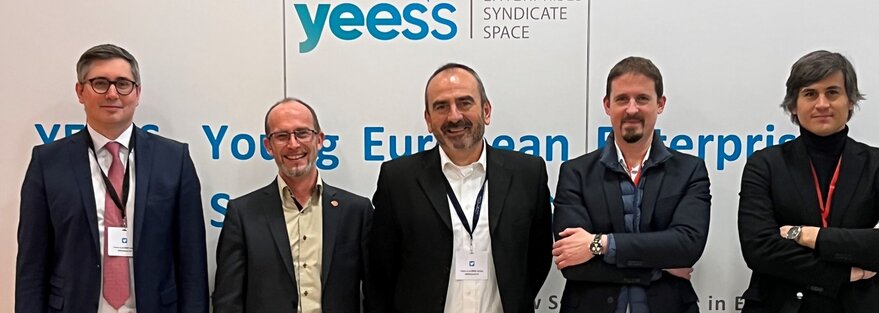Nonprofit supporting European startups expands rapidly
PARIS – The rapid growth of European space startups is reflected in Young European Enterprises Syndicate for Space (YEESS), a nonprofit formed in 2021.
In two years, YEESS has grown from six to 15 companies with combined employment of more than 1,000 people, Juan Tomás Hernani, YEESS president and Satlantis co-founder and CEO, told SpaceNews at the World Satellite Business Week conference here.
Member companies are based in Toulouse, France, Bilbao, Spain, Charleroi, Belgium and “all over Europe,” Hernani said. Most of the startups have facilities in more than one country.
The entrepreneurs who founded YEESS were frustrated by a lack of opportunities.
“We had demonstrated that we could deliver products but we could not access institutional programs because the institutions thought that only the primes were capable of providing services or infrastructure,” said Nicolas Capet, Anywaves president and YEESS vice president. “Pushing this message as individual entities was not efficient. We decided to work together.”

Encouraging Competition
The main goal for YEESS is competition, Hernani said.
European institutions, which provides the majority of contract funding for space programs, traditionally turn to prime contractors for space products and services. Now, they are learning to work with space startups that strive to be agile and cost-efficient, Hernani said.
Access to capital, launch and electronics is prompting people to establish space companies all over the world.
“Obviously, we are global companies because NewSpace is a global markets. But we want the chance to develop these activities in Europe,” Capet said. Maintaining European expertise in this sector is important given the key roles space systems play in global communications, climate change monitoring and offering strategic insights, he added.
Working with Primes
In addition to working with European institutions, YEESS seeks to help prime contractors recognize the advantages of working with startups.
“It’s an opportunity for them to get access to higher-risk technologies faster and at a more competitive price,” Capet said. “It accelerates the development of new space infrastructures.”






